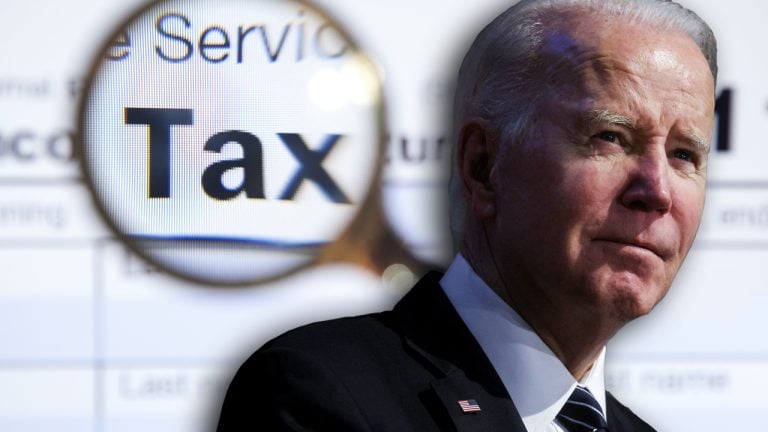
Biden Budget Proposal Targets Crypto Investors Using Like-Kind Exchange Provision; Plan Aims to Tax Crypto Miners 30%

On Thursday, the Biden administration released the U.S. president’s 182-page budget proposal for the fiscal year 2024, which aims to “grow the economy from the bottom up and middle out.” The budget includes an $835 billion increase in military spending, but the administration claims it will reduce the deficit by $3 trillion over the next decade. Additionally, the budget proposes “closing a loophole that benefits wealthy crypto investors” and plans to gradually introduce a 30% tax on the electricity used in cryptocurrency mining.
Biden Budget Aims to Reduce Deficit by Raising Taxes
Unlike many past U.S. presidents who promised no new taxes, president Joe Biden has no issue with imposing more taxes on American people and businesses. However, the Biden administration claims that the higher taxes are targeted at the country’s wealthy, and the latest budget proposal aims to add a 25% minimum tax on the wealthiest Americans.
The White House budget proposal is subject to review, modification, and approval and is not yet finalized or set in stone. Biden, of course, will be running for reelection next year and faces the possibility of losing to another candidate. President Biden’s budget plan calls for increasing the corporate tax rate from 21% to 28%, as well as raising taxes on fossil fuel companies involved in oil and gas.
The administration contends that the current tax code provides wealthy Americans with “special treatment” that enables many of them to pay lower rates through tax planning and “loopholes,” according to the Biden administration’s budget fact sheet. The plan also addresses “wealthy crypto investors” and real estate investors. In the “Closes Tax Loopholes” section of the Biden budget, the plan references Section 1031 of the Internal Revenue Code.
The Internal Revenue Code section 1031, sometimes referred to as a “like-kind exchange,” permits individuals or businesses to delay paying taxes on certain types of property they exchange for similar property. This tax provision was first introduced in 1921.
Eliminating the like-kind exchange provision or the 1031 exchange rule could have serious consequences for crypto investors. This could result in higher tax bills, administrative burdens, and could potentially discourage investment in the market. President Biden’s budget proposal could lead to a substantial rise in tax bills for active crypto traders who frequently engage in trading.
2017 Changes to 1031 Exchange Rule; Biden’s Plan Aims to Tax Crypto Miners
The 1031 exchange rule underwent significant changes in 2017 with the passage of the Tax Cuts and Jobs Act. The rule was restricted to real property, and a transition rule was introduced to provide a grace period for taxpayers who had already engaged in like-kind exchanges of personal property. Additionally, the 2017 changes established a threshold for taxable gains.
President Biden’s budget proposal contends that the “ultra-wealthy” exploit these tax incentives provided by the provision to “accumulate tax-free fortunes.” However, some argue that not only billionaire types benefit from the like-kind exchange provision. It also offers lower-income and middle-class investors the chance for tax deferral, which can enhance their liquidity and diversify their investments.
President Biden’s budget plan also targets cryptocurrency miners with taxes by proposing to impose an excise tax on crypto mining operations that consume electricity. The tax would gradually increase to 30%. According to the proposal, “firms engaged in digital asset mining would be required to report the amount and type of electricity used as well as the value of that electricity if purchased externally.”
The proposal also states that “firms that lease computational capacity would be required to report the value of the electricity used by the lessor firm attributable to the leased capacity, which would serve as the tax base.” Beginning from the taxable year following December 31, 2023, the proposal would implement a phased excise tax at rates of 10%, 20%, and 30% over a period of three years.
What do you think about Biden’s budget plan that raises taxes in order to lower the deficit burdens? Let us know your thoughts in the comments section below.
Go to Source
Author: Jamie Redman








